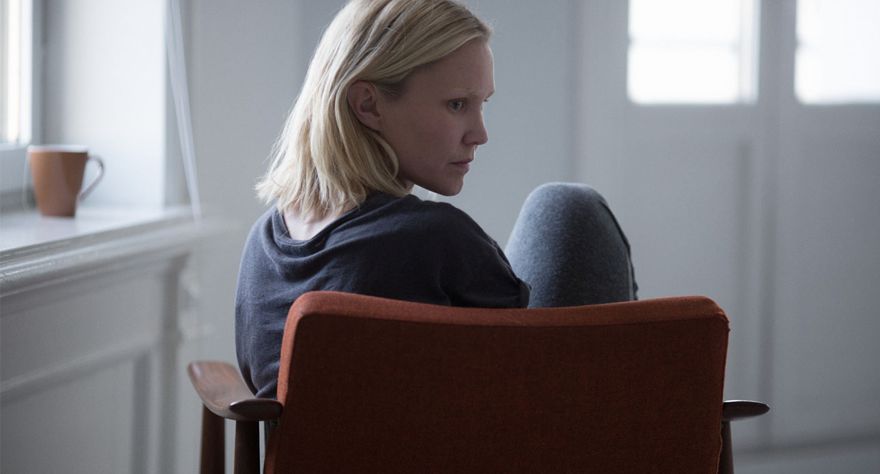
A deeply literary film with a focus on the sensory aspects of the human experience, driven by a powerful and sensual lead performance.

A deeply literary film with a focus on the sensory aspects of the human experience, driven by a powerful and sensual lead performance.
To be unable to see must take a toll on one’s self-awareness and one’s self-consciousness. Those with the privilege of sight tend to take the ability to see for granted, not often thinking about or feeling gratitude for what’s been given to them. But what would it be like not to have the opportunity to stare at oneself in the mirror? Not to be able to visualize oneself in one’s mind? It isn’t difficult to imagine that one’s self-image would be affected by such an incomplete sensory experience, as is the case with Ingrid, the protagonist of Eskil Vogt’s wonderful directorial debut, Blind.
Ingrid (Ellen Dorrit Petterson) is a woman dealing with loss. Not the loss of a spouse or a parent or a child, but as previously mentioned, the loss of vision. It has been a couple of years since her sight has been taken from her, and she’s reaching the point where she’s beginning to have problems visualizing her surroundings; images are finally slipping away from her. As a result, she starts to develop insecurities, not only about herself and her body, but her environment as well. For instance, she questions whether her husband really does go to work, or if he is in fact sitting in silence, watching her, a companion transformed into nothing more than a voyeur.
It is because of these newfound uncertainties that Ingrid, restricting herself to her apartment, takes to her laptop, beginning to write stories through which she expresses frustration with her situation. At this point, director Eskil Vogt begins to play around with audience expectations and provides a whole new meaning to the idea of fusing reality with fantasy. Ingrid’s fiction blends seamlessly with her true life experience, and because Vogt’s mode of filmmaking is so simple and minimalist, there aren’t any fancy editing tricks employed to clearly separate what is real from what’s taking place in her literature. This sounds like it may make for convoluted storytelling, but it is handled with such a degree of care and earnestness that the story rarely regresses into incoherence.
This is part due to Vogt’s excellent screenwriting and his cinematographer, Thimios Bakatakis’ equally impressive camerawork. Vogt and Bakatakis had already proven themselves successful creators with their previous projects. Vogt working hand-in-hand on three films with one of Norway’s most successful directors, Joachim Trier (Reprise, Oslo August 31st, Louder than Bombs), and Bakatakis working with one of Greece’s great filmmakers, the Academy Award nominated Yorgos Lanthimos (Dogtooth). However, it is with Blind that their talents have come into full fruition; Vogt’s internal dialogue carries the film, with Ingrid acting as narrator for all the film’s characters, both in her reality and in her fictions, and Bakatakis’ imagery taking an expressionist approach by focusing more on sensory details and framing than a straightforward representation of Ingrid’s reality.
It was a wise choice indeed for Vogt to provide his protagonist with omniscience, for it’s through many of the characters’ internal lives, daily routines and histories that viewers come to understand things about them and care for them. Most of what the audience learns about these characters is a result of the exposition within Ingrid’s narration, but it never feels invasive or as if Vogt is taking the easy way out by merely explaining rather than showing. There are some things you cannot show. The characters within Blind are ultimately very private people, and the only way viewers are ever going to learn anything about them is through some sort of all-knowing voice. It’s in this sense that Blind nearly transcends being only about literary expression, almost feeling more like a novel than a film inclusive of literary themes. There’s a strong visual emphasis on the sensory experience (or sometimes lack thereof) and a gorgeous original score from Henk Hofstede. In the end, its cinema in the purest form—an imagistic recreation of reality.
Blind opens in New York and Los Angeles this week, and is also available for streaming on Fandor.